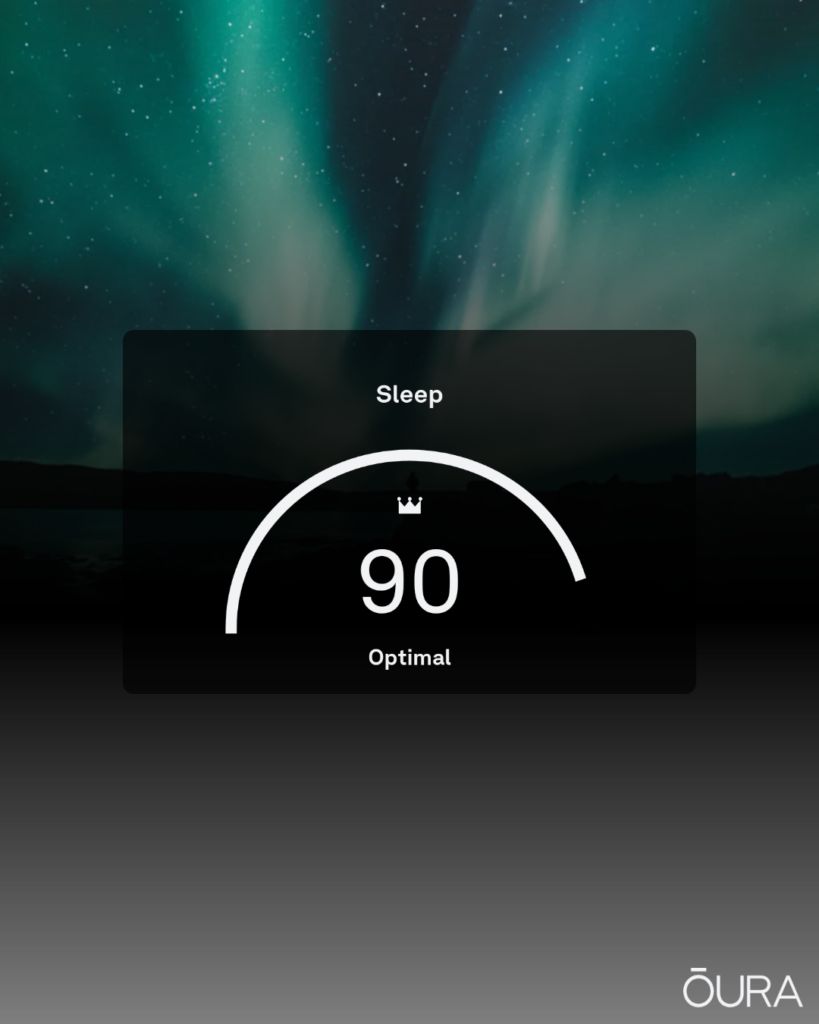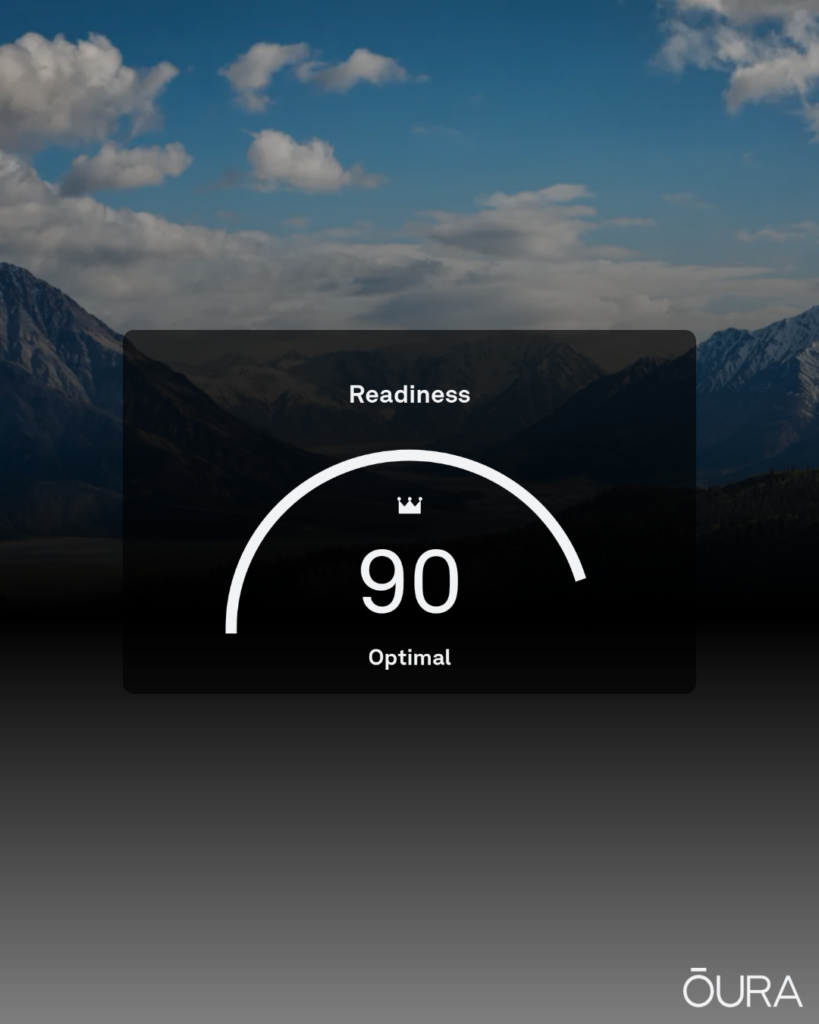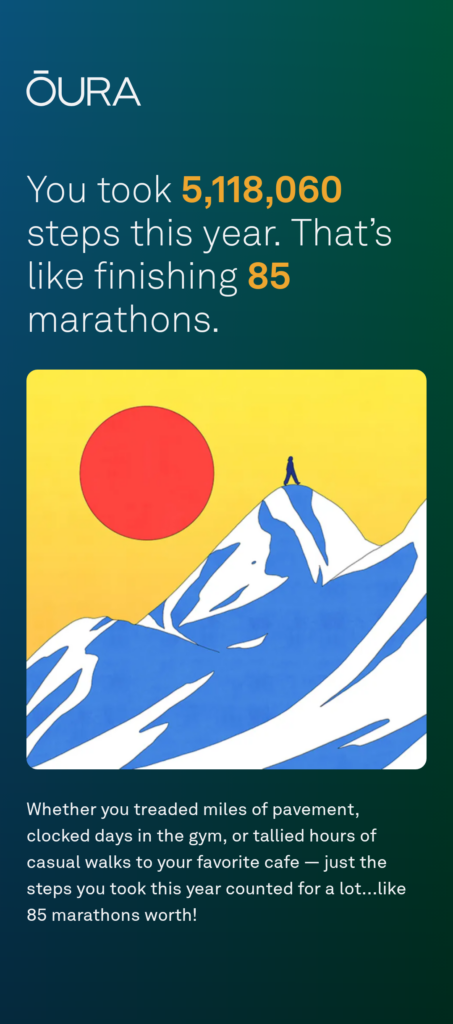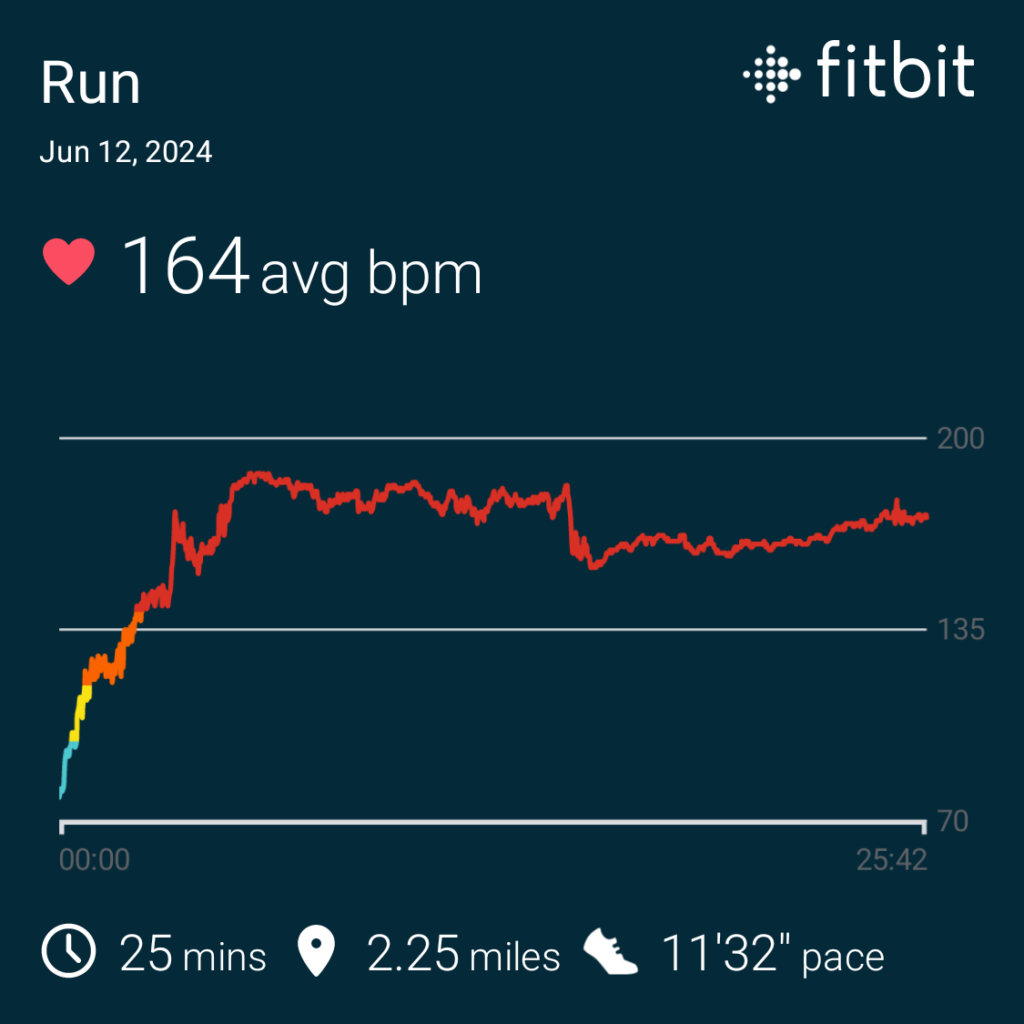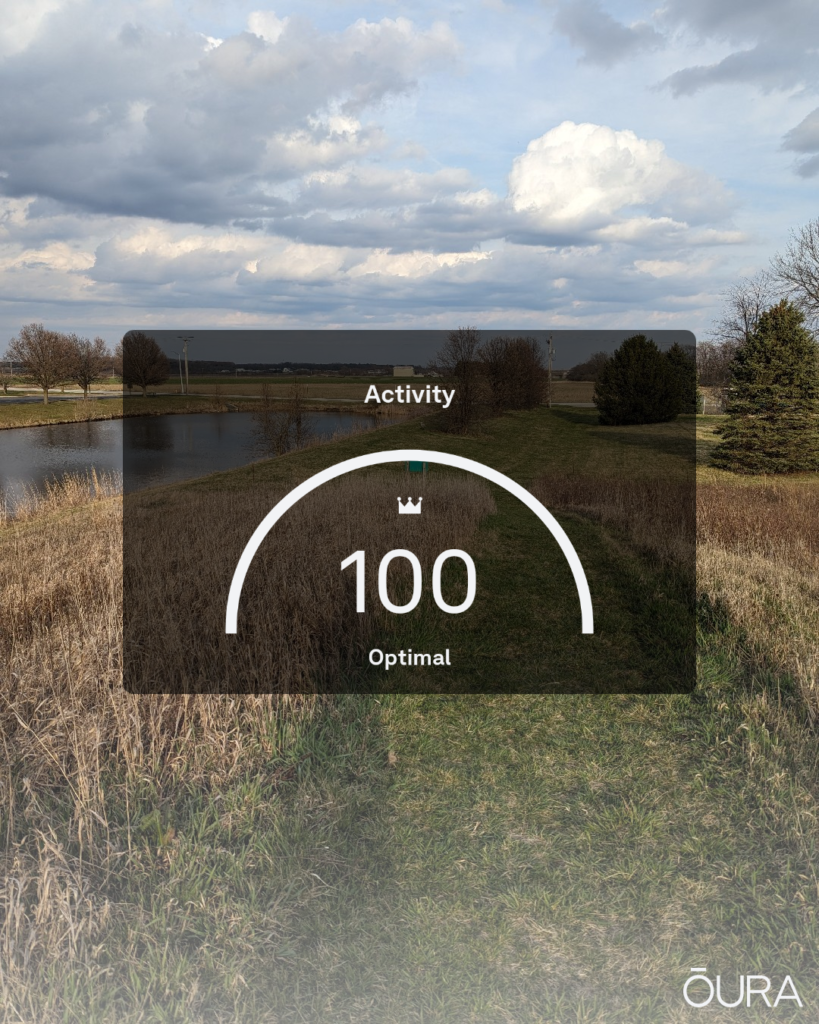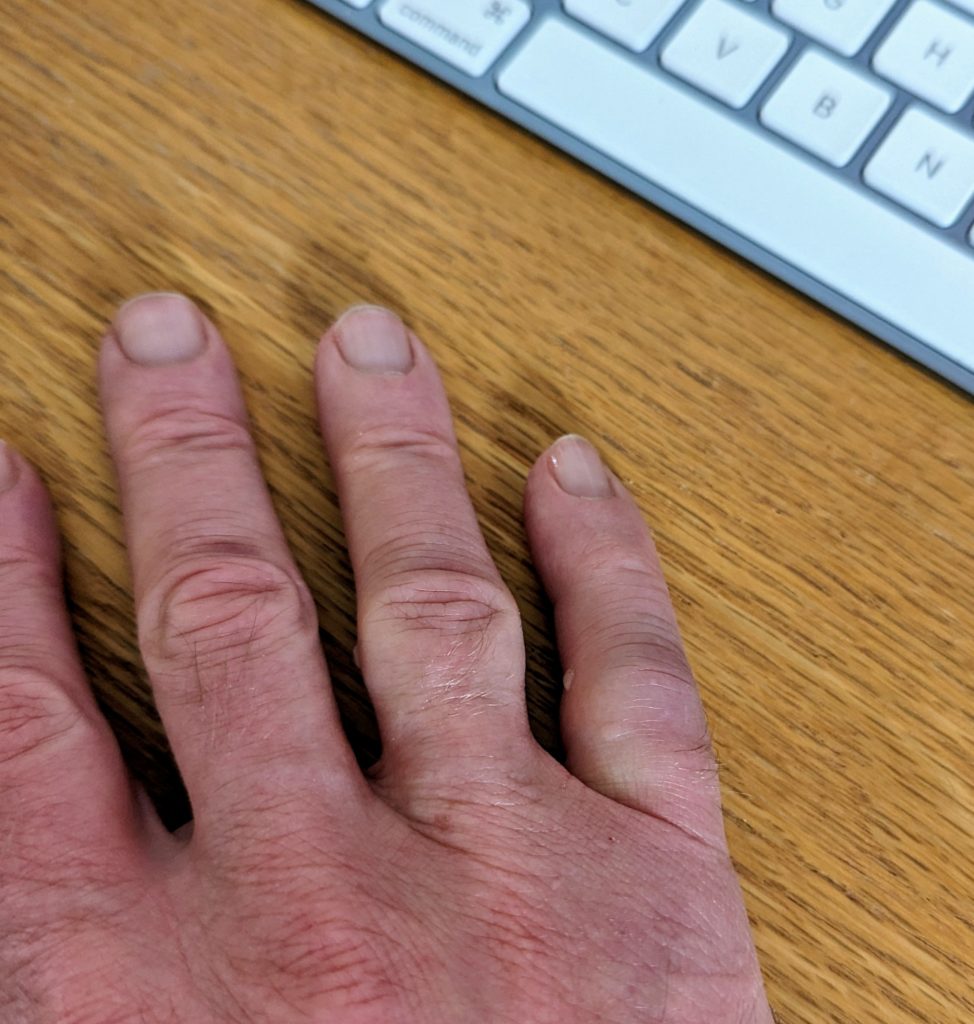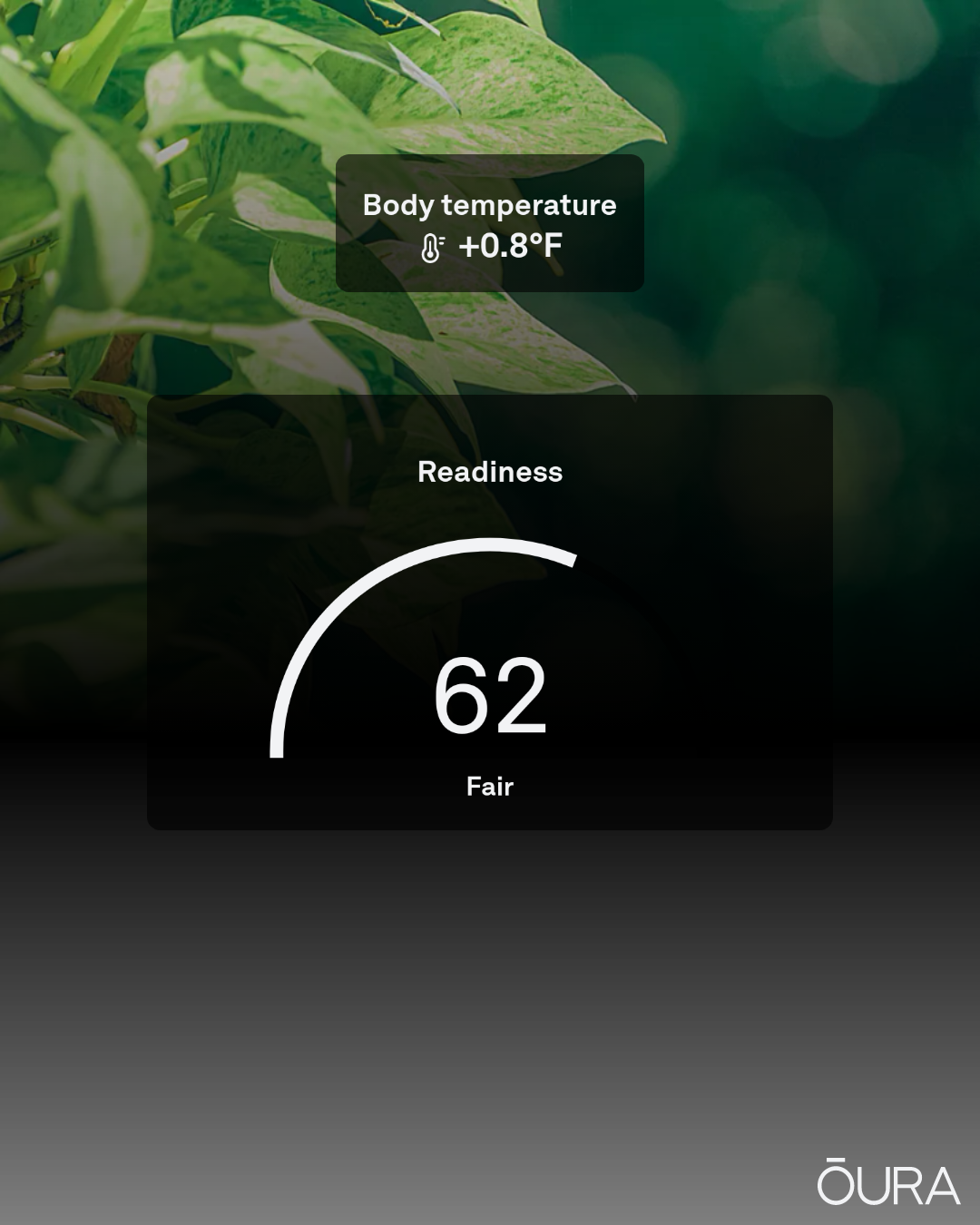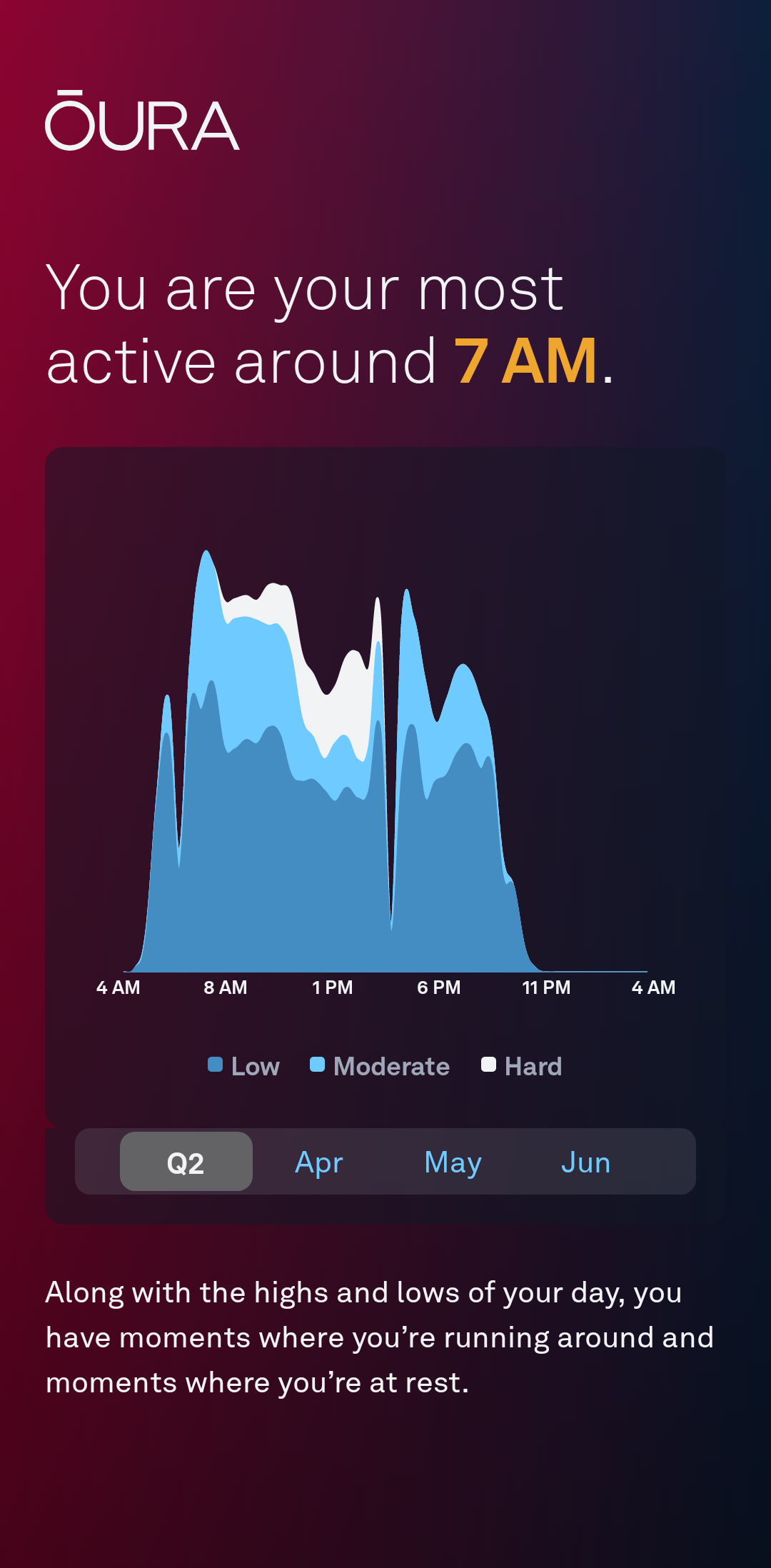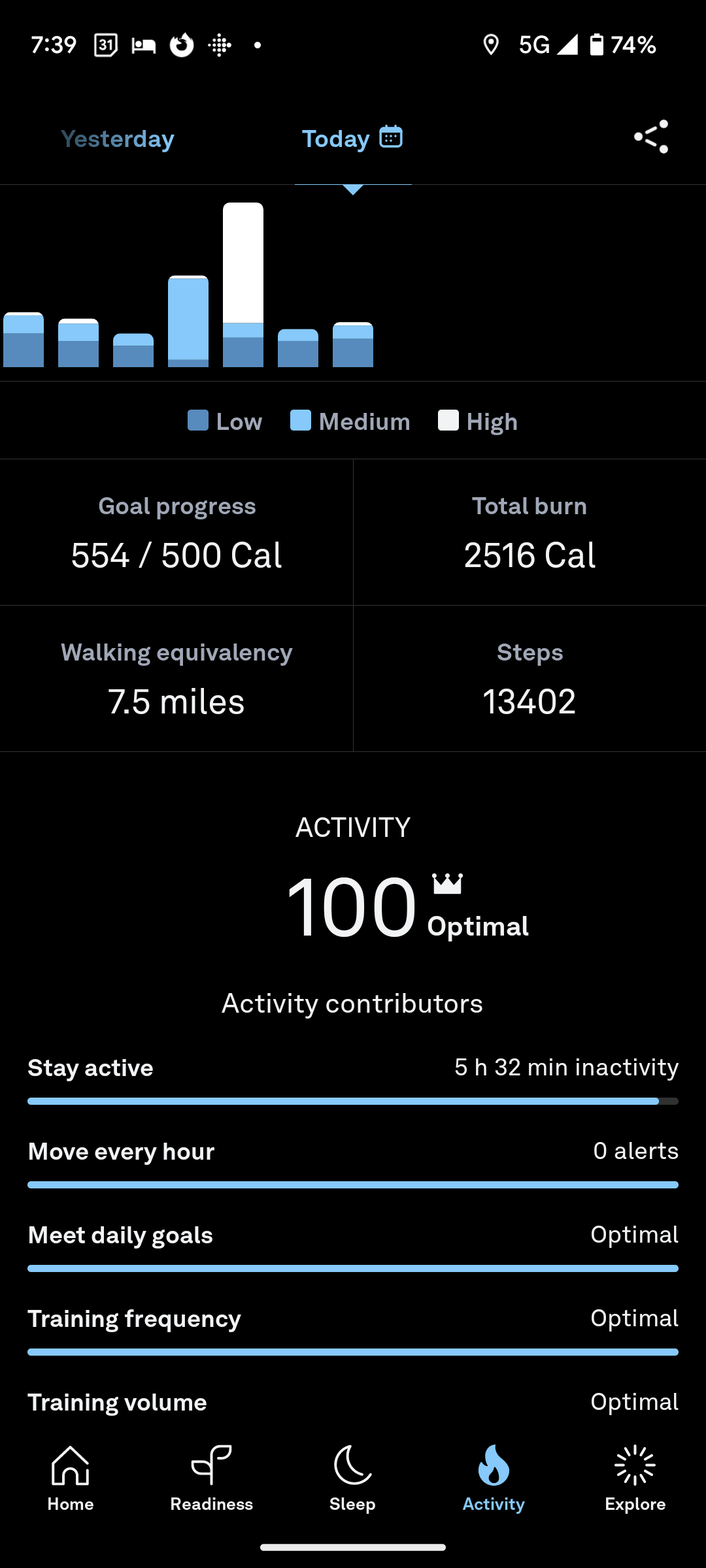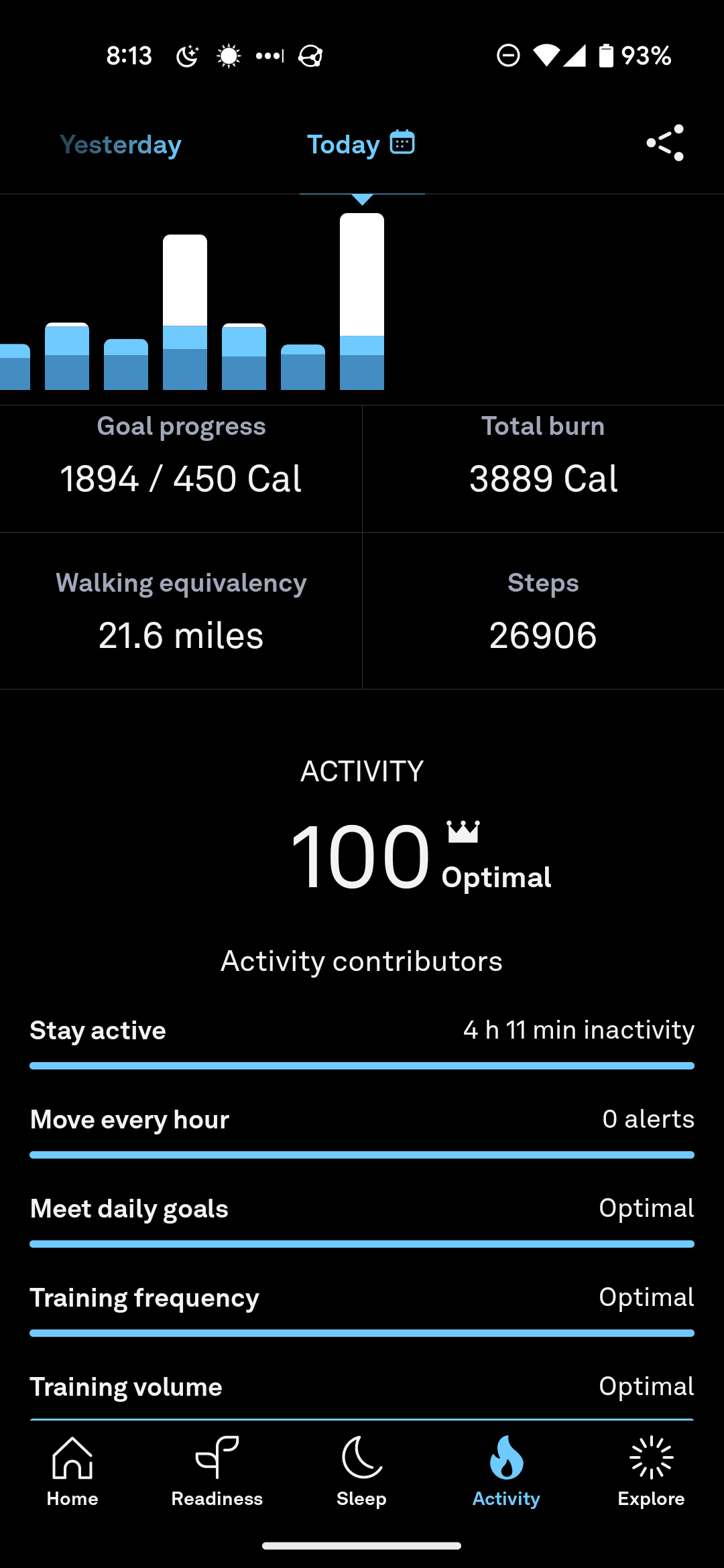For years I worried a lot about daily routines. (Just click on the tag for “daily routine” and you can find literally dozens of posts on the topic.) Of late, that seems to no longer be the case. It’s been years since I posted on the topic.
A few days ago though, my brother mentioned me in a toot on daily routines, which prompted me to wonder what my current daily routine actually looks like. Turns out, I do have a daily routine, that I stick to pretty well (with minor adjustments for errands, medical appointments, etc.).
Unsurprisingly, it’s rather sun-aligned.
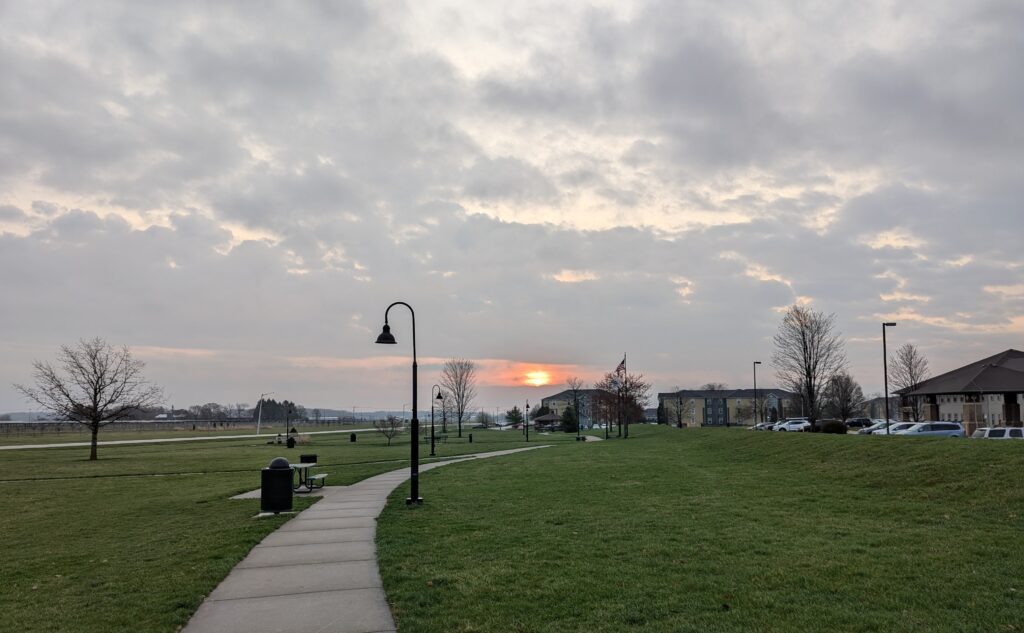
(6:00 AM) I get up around dawn, which is at different times at different parts of the year, but is around 6:00 AM right now. I drink a (ginormous) mug of coffee (or two). I spend some time dicking around on the internet, check my social media feeds, chat on-line with my brother, and get an update on our mom (who lives with him). I also check my Oura ring, to see how well I slept. (That’s a joke. Of course I know how well I slept. But the information my Oura ring provides is nevertheless sometimes valuable.) We usually do the Jumble via chat during this time as well.
(6:40 AM) Around sunrise I take the dog for her first walk of the day. That’s been around 6:45 lately, but is getting earlier every day just now.
(7:00 AM) After first-walk I might have a third cup of coffee, but I proceed to fixing and then eating breakfast.
(8:00 AM) After breakfast it’s time for the dog’s second walk. This is the long walk of the day. In bad weather it might also be just 20 minutes, but is usually at least 40 minutes, and in really nice weather might be an 90 minutes or longer.)
(9:00 AM) Once I get home from second walk, I proceed to my morning exercises, which I ought to be able to do in 20 minutes or so, but which often stretches out to twice that long. I’m working to shorten it, so I have some hope of getting something else done during the day.
(9:30 AM) After morning exercises (which is really a stretching/flexibility/mobility routine), I proceed to my workout, unless it’s a rest day. That takes 40 minutes to an hour.
Since I started drafting this post three or four days ago, I’ve been tracking the start and end times of my morning exercises and my workouts, with an eye toward collapsing the total time for this stuff down to the 60–80 minutes that it should be. If I can do that, I should be able to finish no later than 10:30, which should give me most of three hours available to get work done, before I need to break for the main meal of the day.
(10:30 AM) Get work done!
(1:00 PM) Jackie and I have moved our main meal of the day to 1:00 PM or 2:00 PM, which provides just a bit more flexibility for getting work done in the morning (although that time gets used up if I need to run an errand, or if I’m fixing lunch that day). Ashley usually gets her third walk of the day either right before or right after lunch.
I generally don’t even try to get anything useful done after that. I might take a nap. I might read. I might spend some more time dicking around on the internet. Just lately, I’ve been trying to get a backup server configured so that my brother and I can backup our backups to each other’s servers, meaning that we’ll have off-site backups.
(4:15 PM) At 4:15 PM we have our cocktail hour call with Steven and my mom. We’ve all cut back on alcohol consumption, so we usually drink water rather than a cocktail, but we’re sticking with the call. It means I get to talk to my mom nearly every day.
(4:45 PM) After cocktail hour I take Ashley for her fourth (and now, finally, last) walk of the day. When she was a puppy I had to take her for eight walks a day (to keep her from peeing in the floor). That ramped down pretty quickly to seven and then six, but it took a long time to get her down to five and then four. But this is actually much more convenient for me, as well as being enough walking for both of us. (I average over 12,000 steps a day, even in the winter. In the summer it’s more like 15,000.)
(5:30 PM) After fourth-walk I usually sit down to watch some video entertainment with Jackie, or else read some more.
Jackie goes to bed quite early most days, a remnant from her days working at the bakery (when she had to get up at 4:00 AM).
I generally like to go to bed a couple of hours after sunset, although not that early in mid-winter nor that late in high summer. Just lately I’ve been aiming to take Ashley out of the patio for one last peeing opportunity in time for me to get to bed around 9:00 PM.
There’s some variability, of course. Mondays I do Esperanto in the early evening. Wednesdays there’s (just recently) a gentlemen’s lunch. Thursdays there lunch with some former coworkers, that’s been going on in some form or another for decades now. Sunday afternoons (and when I’m feeling fit enough, Tuesday and Thursday evenings) there’s sword fighting.
As I said above, the main value of this post to me seems to be around how I might get my warmup and workout done more compactly. I think I’ll write about that soon, and if I do, I’ll link to it here.

